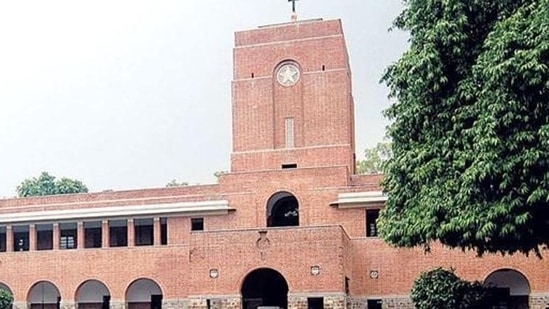The judge who envisioned Delhi University as a miniature Oxbridge
Maurice Gwyer, was appointed the vice-chancellor of the Delhi University in 1938, is widely credited with single-handedly transforming it.
Maurice Gwyer is widely credited with single-handedly transforming Delhi University. Born in London on April 25, 1878, Gwyer was appointed the vice-chancellor of the Delhi University in 1938. In fact, he was also appointed the first chief justice of the Federal Court of India, a year earlier in 1937. But the Federal Court, in its initial days, did not have much work, so the Viceroy asked him to take over as the vice-chancellor of the Delhi University.

Also Read | Delhi and its university: How an institution helped shape a city
Gwyer, who was a fellow of All Souls, Oxford, wanted DU to be like Oxbridge (Oxford and Cambridge). But when he took over as the vice-chancellor, he was deeply upset at the state of affairs in DU. “Sir Maurice conceived of Delhi University as a miniature Oxbridge. He dreamt of a cluster of small residential colleges around the core of the university,” wrote Aparna Basu, late professor of history at DU, in her essay contributed to the book Delhi Through The Ages, edited by Refrykenberg.
Gwyer wanted DU to be an all-India university, a university that was different in character, and set new standards as university of the capital city. “Sir Maurice suggested measures by which the transformation of the university might be effected. He did not want to create in Delhi a mere replica of the other universities in India,” wrote Basu.
He wanted the establishment of a number of professorial chairs, and readerships. He also wanted to introduce a provision of scholarships for postgraduate study and research and he also sought to fix a period of three years as the length of a degree course.
All this was part of a memorandum that he submitted to the government in 1939, which accepted most of his suggestions. The government made a non-recurring grant of ₹8 lakh, to be spread over five years. Before that, as Basu pointed out, the DU’s income consisted of less than ₹1 lakh from fee and an annual grant of ₹1 lakh from the government of India. The three-year BA and BSc pass and honours degree courses were introduced during his tenure. It was during his tenure that a number of professors and readers were appointed.
Gwyer always wanted a distinguished faculty that could act as role models. So he looked for talent all over the country and brought eminent academicians such as VKRV Rao, RU Singh, TR Seshadri, P Maheshwari and ML Bhatia to the university. He also invited nationally and internationally renowned figures such as EM Forster, Eve Curie Joliot, Homi Bhabha, and others to give lectures at the university. He even improved the salaries of professors and gave them staff quarters.
Gwyer loved to socialise and lived in style. His house in Delhi was a meeting place for a large number of people, both British and Indian.
An anecdote in ‘University of Delhi: 1922-1997’, a book published by Delhi University on the occasion of the Platinum Jubilee in 1997, shows that he was a fearless man with a mind of his own: “His private secretary Mr Ramkrishnan recalled, that when Viceroy, Lord Linlithgow once asked him to come and see him, the vice-chancellor replied that Delhi University was very pleasant and the viceroy might enjoy a change of atmosphere by coming over.”
In the 1950-51 budget, the grant made by the Parliament was much less than the DU had asked for. Gwyer resigned on April 11, 1950, months before his term was to end in December.




